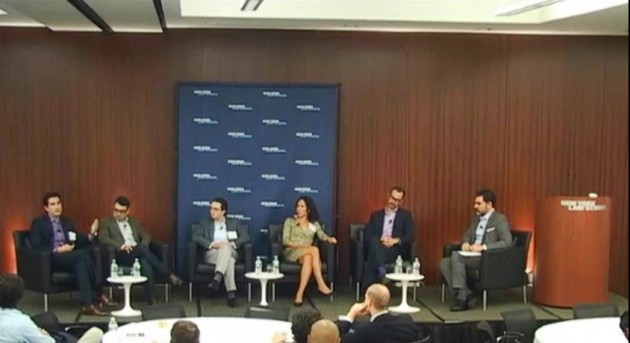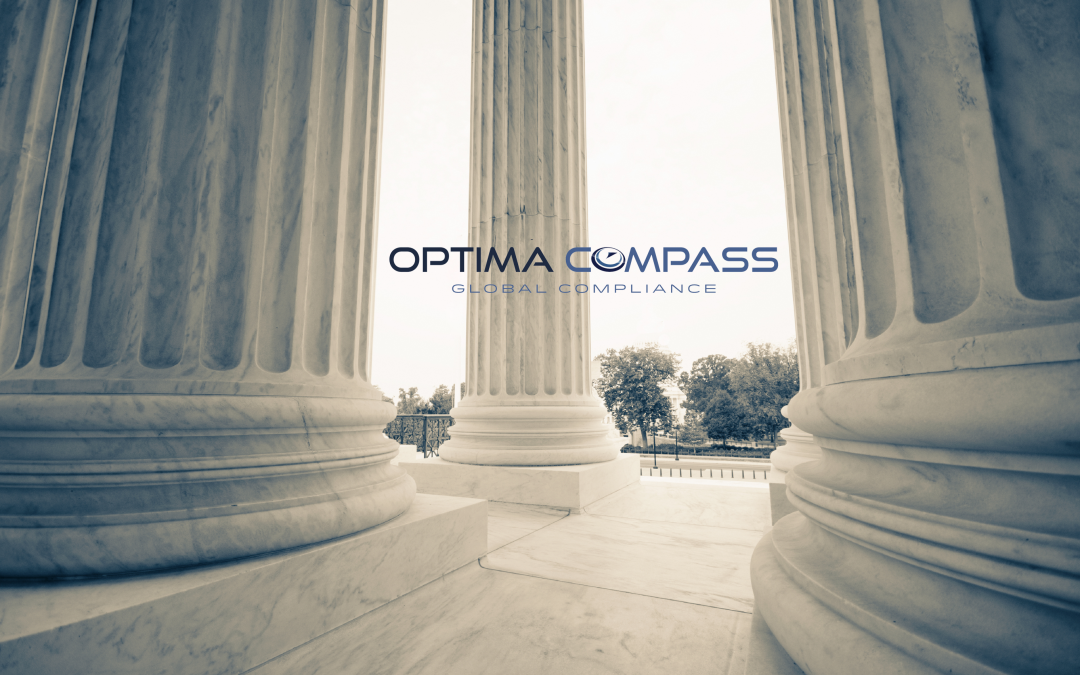
by Optima Compass | Oct 27, 2014 | Alerts
In two of its most recent guidance response letters, FinCen reaffirms its intent to apply strict controls to the virtual currency world. In these latest examples you can plainly see how they are interpreting applicability of guidance to open market startups providing significant detail to support their assertion of applicability for BSA rules. Startups in the space will do well to assume these obligations and factor these issues into their deployment models and regulatory obligations if they are to mitigate market, regulatory, and investor risks. You can find this information in two FinCen PDFs below: FIN-2014-R011: http://www.fincen.gov/news_room/rp/rulings/pdf/FIN-2014-R011.pdf FIN-2014-R012: http://www.fincen.gov/news_room/rp/rulings/pdf/FIN-2014-R012.pdf...

by Optima Compass | Oct 24, 2014 | Alerts
FinCEN’s GTO concerning LA’s garment district is as important for what it implies as for what it explicitly states. What it states is that a few businesses in LA’s garment district appear to have made themselves available to be used by Mexican drug cartels and money launderers. What it implies is that money laundering is not solely the concern of financial institutions. It is now a very real concern for non-financial businesses – TBML hits Main Street. The article below can be found at http://www.acfcs.org/fincen-order-targeting-las-fashion-district-may-prod-institutions-to-review-trade-based-money-laundering-defenses/ FinCEN order targeting LA’s fashion district may prod institutions to review trade-based money laundering defenses A rarely used power recently employed by the US Treasury that imposed anti-money laundering-type obligations on a wide range of businesses In Los Angeles’ Fashion District may prompt institutions to engage in a broader review of the clothing and retail sectors outside the boundaries of the order. Earlier this month, the Financial Crimes Enforcement Network (FinCEN) issued a geographic targeting order (GTO) requiring fashion-related businesses and other retailers to give greater scrutiny to cash transactions and file reports at lower thresholds. The order, which took effect October 9, will be in effect for 180 days. The order reduced the threshold at which businesses must file reports with FinCEN on cash transactions, using what is called IRS Form 8300, from $10,000 to $3,000. It includes more than 2,000 businesses, including garment and textile stores; transportation companies; travel agencies; perfume stores; electronic stores (including those that only sell cell phones); shoe stores; lingerie stores; flower/silk flower stores; beauty supply stores; and stores bearing “import” or “export” in their name. The GTO...

by Optima Compass | Oct 23, 2014 | Alerts
This article was published on October 22, 2014 @ https://www.coindesk.com/ny-law-panel-bitcoin-wont-get-banking-without-compliance/ On Tuesday morning, the New York Law School hosted the Bitcoin Law conference, drawing entrepreneurs and enthusiasts from the New York City bitcoin community, as well as many of its own aspiring lawyers. The event was moderated and largely organized by Houman Shadab, a law professor and director of the school’s Center for Business and Financial Law. Shadab has researched bitcoin and cryptocurrencies extensively, as well as hedge funds, derivatives, securitization and commercial transactions. Earlier this month he spoke to the US Commodity Futures Trading Commission on behalf of the bitcoin community. Five attorneys took the stage for a panel discussion. They were Blockchain global policy counsel and Pillsbury Winthrop Shaw Pittman counsel Marco Santori; Jerry Brito, executive director of nonprofit research and advocacy center Coin Center; Brian Koffler, president of Koffler Legal & Consulting Services; American Express VP and senior counsel Emily H Goodman Binick; and CoinComply managing director Brian Stoeckert. The discussion, titled The New Landscape for Federal and State Regulation of Cryptocurrencies, began by asking ‘Is bitcoin money?’ However, the panel found, because bitcoin is handled differently by various institutions, it may not matter. Santori said: “People like to talk about what is holding bitcoin back, and what are some of the biggest challenges today? People usually say things like ‘banking’.” He pointed out why regulation and compliance are both so critical to how banks approach bitcoin, saying: “Right now in banks and most financial institutions almost a third of their personnel are dedicated to compliance, and that tells us something: it tells us that these institutions can’t service an industry unless they’re...

by Optima Compass | Oct 20, 2014 | Alerts
SAN FRANCISCO, CA., October 20, 2014 – Ribbit.me™, the creator of RibbitRewards™, the world’s first global rewards program based on blockchain technology, today announced its partnership with Optima Compass, an industry leader that specializes in anti-money laundering (AML) and regulatory compliance services. The companies will work together to implement Optima’s Compliance as a Service (CAS) program, which established a gold-standard-level compliance program that serves to protect both consumers and retailers conducting business on the RibbitRewards marketplace. “Optima Compass provides robust solutions that enable companies like Ribbit.me to comply with regulations in regard to AML guidelines and sanction lists requirements,” said Sean Dennis, Ribbit.me CEO. ”Their systems and staff help us to maintain our steadfast commitment to protecting our buyers and sellers through having all of the necessary controls in place, and to be compliant with FinCen AML regulatory requirements.” “We are well-prepared to address the AML regulatory complexities involved in running innovative global businesses like the Ribbit.me marketplace,” said Jorge Guerrero, Optima’s CEO and regulatory policy leader. “Our Compliance as a Service program and our AML Compass platform are uniquely suited and specifically designed for companies like Ribbit.me to deploy world-class controls from day one of operations.” Ribbit.me plans to launch its Global Airdrop on November 1, where a pre-determined number of RibbitRewards are distributed at no cost. The Bonus Airdrop also begins November 1, allowing anyone to bid for additional RibbitRewards, auction-style. The Ribbit.me marketplace is set to open the first week of December. About Ribbit.me For more information about Ribbit.me, visit www.ribbit.me. Follow us on Facebook (facebook.com/RibbitRewards) and Twitter (@RibbitRewards). About Optima Compass For more information about...

by Optima Compass | Sep 14, 2014 | Alerts
Money laundering prevention and compliance with OFAC goes beyond financial institutions. FinCEN proved this by announcing a Geographic Targeting Order (GTO) on October 2, 2014, requiring that certain non-financial businesses in Los Angeles adopt measures to prevent money laundering. The GTO follows a September 10, 2014 historic raid on the Los Angeles Garment District where roughly 1,000 law- enforcement officials seized at least $65m in cash and arrested nine people. Several garment businesses allegedly helped drug traffickers ferry proceeds from sales back into Mexico. Because of the raid, the GTO requires businesses to apply comprehensive anti- money laundering measures that include transaction monitoring, customer identification, report filing and record retention. These primary obligations include secondary functions that are indispensable. The GTO imposes personal civil and criminal liability on business operators and others. Unfamiliar with anti-money laundering compliance concepts the businesses identified in the GTO, how can those businesses comply? Must they develop and apply an instant compliance program? Optima can help. With Optima’s AML Compass software, non-bank and non- financial businesses can record financial transactions, set alert rules that inform when customers have reached $3,000 in one day, identify potentially suspicious activity, file government reports and maintain records for 5 years. And that’s just the beginning! Optima’s “Compliance As a Service” solution provides a skilled AML analyst to monitor transactions in real time and assist businesses in making compliance decisions on the spot. Additionally, AML Compass makes OFAC compliance as simple as a click of a button- and the application of some monitoring rules, of course. Client Lists Optima provides AML compliance services to: Banks (domestic and foreign)...







